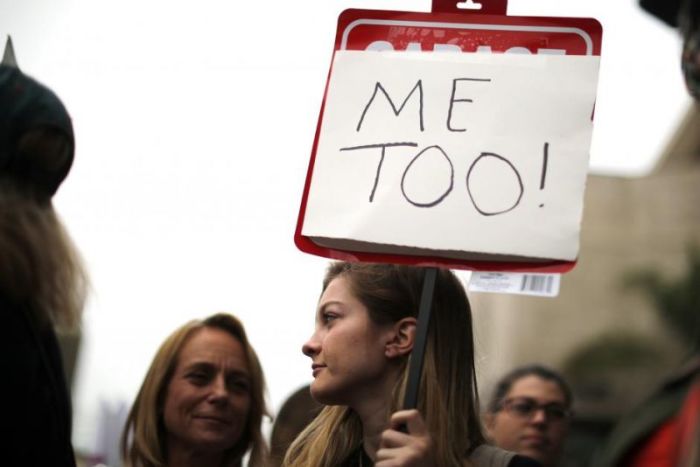Will Sexual Misconduct Revelations, #MeToo Movement Overhaul the Sexual Revolution?

Some of most influential publications in America are rethinking the sexual revolution amid a cultural moment where sexual misconduct allegations emerge daily against powerful men once considered untouchable.
"As the parade of post-Weinstein exposés marches on, so do the unhappy reactions to a sexual landscape suddenly turned on its head," wrote Christine Emba, an opinion editor at The Washington Post on Sunday.
Several weeks of constant exposure of powerful abusive men in many spheres have produced anxiety in some men, a "sex panic," that they will be accused of sexual misconduct as they wonder where the new boundaries lie as to what constitutes wrongdoing. And paranoia over the #MeToo movement — the phenomena of thousands of women coming forward to tell of their experiences with sexual harassment on social media and elsewhere — is not entirely baseless, Emba said.
"While some worries should rate only an eye roll, others highlight the precariously gray continuum from annoyance to harassment to assault. But it's also true that these questions hold something in common. They gesture toward America's prevailing and problematic sexual ethic — one that is in no small part responsible for getting us into this sexual misconduct mess in the first place."
The problematic sexual ethic is a "sex above all" ethic, she noted, one that is full of shaky assumptions — that there is a baseline amount of sex we should all be getting and the only principle governing it is "consent."
Author Steven Marche is laying the blame on this crisis in part on the "brutality" of male sexuality, writing in The New York Times Saturday that society has not sufficiently thought about masculinity nor examined the "ugly and dangerous nature" of male sex drive. The fear of male sex drive is the subject of many fairy tales and literature, he explained, and men especially must recognize their "bestial" nature.
"There is a line, obviously, between [sexual] desire and realization, and some cross it and some don't. But a line is there for every man. And until we collectively confront this reality, the post-Weinstein public discussion — where men and women go from here — will begin from a place of silence and dishonesty."
But Marche's insistence that we acknowledge this offers no real answers, Houston Baptist University professor and author Nancy Pearcey commented on her Facebook page Monday. Pearcey's upcoming book is Love Thy Body: Answering Hard Questions about Life and Sexuality.
"Christianity was born into a very similar culture," as America today, she said, "where powerful males had sexual access to just about anyone they wanted."
"In the ancient world, virtually no sexual activity was considered immoral in itself, as long as it was practiced in 'moderation,'" Pearcey said, quoting an excerpt of her book which will be released in January.
By contrast, the Christian view of marriage and sexuality was "radical" since it "channeled male sexual desire into marriage as the only acceptable outlet," she added, noting that the early Christians who practiced this in ancient Rome were not defending "traditional" morality but standing bravely against cultural norms. The Christian faith thus elevated the status of women, she said.
"The moral rule of monogamy essentially means 'to each his own.' A wife does not have to compete with others for her husband's love. No wonder women were especially attracted to Christianity. The early church may have been 'on the wrong side of history.' But that's why it changed history."
As revelations of sexual predation steadily appear in the headlines, history appears to be changing again, and some suggest that unlikely alliances should be forged in light of the times.
In a Tuesday Daily Beast column, "Welcome to Our New Age — the Victorian Feminist Era," writer Matt Lewis urged good men and women of different political persuasions to unite to fight the abuse of women.
"[T]wo specific coalitions of stakeholders within these broader categories are perhaps most important, inasmuch as they are already activists: liberal feminists and conservative Christians," Lewis said.
The pendulum swing toward stricter codes of conduct is a product of secular feminism, he explained, and right-leaning Christians ought to support this.
"Maybe this is an opportunity for Christian conservatives to step back from partisan politics and spend some time talking about masculinity, chivalry, and old-fashioned virtues that used to be called 'gentlemanliness.' Rather than seeing these old-fashioned attributes of gentlemanliness as a sign of weakness, we should see them as the definition of masculinity."
"Feminists and Christian conservatives should unite around shared goals. It sounds crazy, but all we need are a few leaders who care more about fixing things than scoring points. Will they emerge?"




























